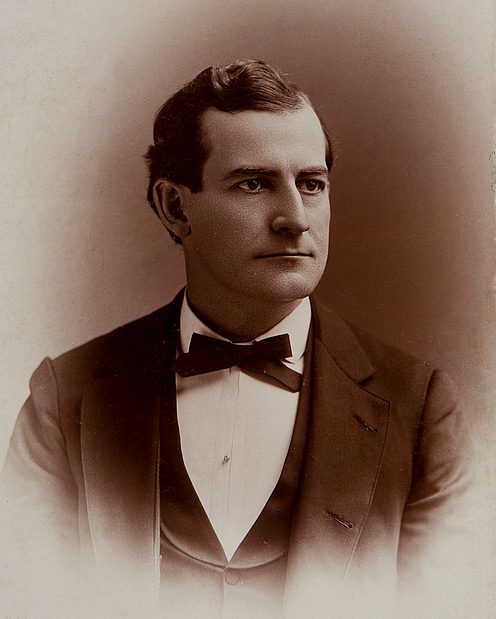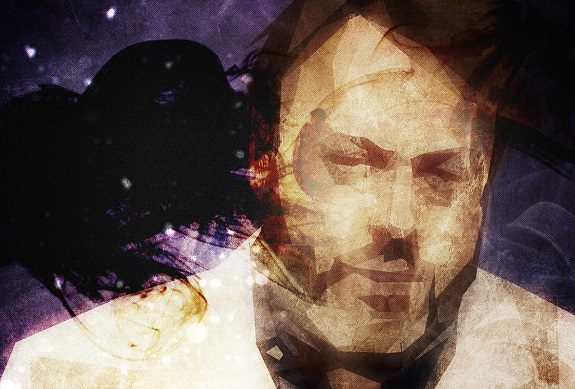ExChristian.Net is a flourishing atheist site. Dave Van Allen was formerly the webmaster. I have an ongoing interest in demonstrating how these common “deconversion” stories of former Christians do not rationally explain why they or anyone else should forsake Christianity. The task is to “defeat the defeater” — as philosopher Alvin Plantinga might say.
If these are the reasons that atheists give for being an atheist and rejecting Christianity, and we can repeatedly show that they are insufficient for their purpose, then we can systematically demonstrate that whatever the basis for these deconversions are, they are not reasonable or rational, let alone compelling. Yet atheists often pride themselves on being greatly intellectual superior to gullible, rather dumb Christians (that is the tendency, anyway; I hasten to add that there are notable exceptions to the general manifest condescension). Dave’s “anti-testimony” story is posted on his site. I shall examine it with a fine-toothed comb. His words will be in blue.
* * * *
I find it absolutely fascinating that at the end of his “anti-testimony” Dave states:
None of this proves or disproves Christianity, I realize, but the purpose of this paper is to show the thinking processes that led to my de-conversion.
Huh?! (scratching head). Are you thinking what I am thinking? If such stories give no reason whatsoever to reject Christianity, then (not to be insulting), I humbly submit: what good are they at all? Who cares about someone’s purely subjective experience if it has no bearing on whether someone else should accept or reject Christianity? I appreciate the intellectual humility of admitting that it offers no disproof, but then, doesn’t that pretty much defeat its very purpose? It’s like one is saying, “here are the reasons why I am not a Christian, but there is no reason to accept my reasons as any reason to reject Christianity.” Rather self-defeating or at least intellectually meaningless, wouldn’t you think? It’s almost as if reason and fact truly don’t matter. All that matters is that some other human being has become an atheist and left Christianity. Actual reasons matter less than the bald fact that they have done so, so that others can have company and not feel alone in a dominant-theist society. Having expressed this disclaimer and puzzlement, nevertheless I press on.
It is invariably a shock to Evangelical Christians to come across someone who has turned his or her back on the “faith was once delivered unto the saints.”
Usually, but not always. After all, the Bible often mentions those who will fall away from the faith.
Most believers will quickly dismiss an ex-Christian by piously pointing out that anyone who turns away from Christ was never a real believer.
Calvinists have to believe that because their system does not allow any other interpretation (i.e., the doctrine of perseverance of the saints). But the great majority of Christians now and throughout history (Catholics, Orthodox, Arminian and Wesleyan Protestants) are not Calvinists, and believe that one can truly be a Christian and fall away, lose grace, salvation, etc.
Or, as an insider might say it, “They were never born again.” There is Biblical support for the assertion. 1 John 2:19, which addressed the problem of First Century apostates, states that: “They went out from us, but they were not of us; for if they had been of us, they would no doubt have continued with us: but they went out, that they might be made manifest that they were not all of us.” (KJV)
Of course, sometimes that is true. But it is not necessarily true in every case. I dispute the assertion that no real Christian can ever fall away (there is much biblical data about that).
(I’d like to point out here that the previous verse, verse 18, suggests that the writer also believed it was the end of history and that the Antichrist was about to appear. It seems that whoever penned 1 John was premature in announcing it to be the “last time.” He may have been mistaken in his quick judgments against those ancient infidels as well.)
This is an involved argument as to what “last times” means.
For those from a Calvinistic background, the fifth petal of TULIP uncompromisingly declares that those truly chosen by God for salvation will persevere in the faith. They will persevere in the faith because God will preserve them in the faith. Or, as a Baptist fundamentalist might express it: “Once saved always saved.” For fundies, a believer gone bad was just faking their salvation or is presently backslidden and will eventually return to the fold, with their tails between their legs.
If they are Calvinists, yes. Not all “fundamentalists” are, though, of course. Even most Baptists are not five-point Calvinists, although they agree with eternal security.
There are also a plethora of competing denominations that teach people can lose their salvation. To members of those denominations, a fellow believer who has fallen away might have really been saved at one time, but is now lost again. They believe it is possible to get saved, and lost, and saved again, many times, before a person’s allotted lifespan runs out.
True. The Catholic or Orthodox, however, would not say a person is “saved” over and over (even most Arminian Protestants, as I once was, would not speak in such terms) because we view salvation as more of a process that is only completed at death (or what Protestants would call “eschatological salvation” — i.e., the salvation of the future when one actually gets to heaven). Catholics would say such a person was in mortal sin, separated from God, out of God’s graces, etc.
The reason for this brief essay is to share my testimony about my personal relationship with Jesus Christ, and my repentance from that relationship. What follows may unnerve some of my closer associates and will likely alienate some of my good friends. I have absolutely no desire to alienate anyone since I have already spent years as a zealous evangelical Christian, alienating dozens and dozens of people in the name of Christ. However, it is only fair to those who know me to allow them a glimpse into where I am coming from, now.
Fair enough. I don’t deny this past experience. I don’t have to. But I am free to deny the reasoning that led to his rejection of Christianity, as inadequate and insufficient, because if that influences other people, and it is untrue and found wanting, then Christians (and especially apologists like myself) are duty-bound to expose its weaknesses and fallacies.
When I was very young, my parents attended a Presbyterian Church. I used to watch my father pray during the service. His eyes would close and his chin would rest against his chest. I wondered if he was asleep. At home, my mother would tell my brother and I Bible stories. I always had questions for her: “Why did God put the tree of knowledge in the garden since he knew what would happen?”
Well, so that human beings could exercise their free will and choose to obey God or disobey Him. I would ask the child back: “why do you presume to question God’s purposes for doing anything, or act as if we would or could or should understand everything that God does, in the first place?”
I also wondered whom Cain married, if dinosaurs were taken on the ark, and all kinds of things my mother could not answer.
The seeds of atheism, because a mother couldn’t answer every garden-variety objection of a bright kid . . . but of course, that is where the function of apologetics is very helpful.
My parents stopped regularly attending church when I was nine,
Much like my experience (I was ten).
but still sent my brother and me to Vacation Bible School during the summer. I was diligent to learn all the Bible lessons, stories and doctrines, earning multiple gold stars in each class. Though I do not remember it, my mother likes to tell a story that even when I was 5 years old, I would come home from Sunday School, gather the un-churched neighborhood kids together on our porch, and parrot all I had been taught that morning.
Zeal that later, unfortunately, was applied to atheist pursuits . . .
I was eleven years old in 1969.
Me too!
My grandmother was a staunch Baptist. In fact, she was one of the founding members of the First Baptist Church in Ashtabula Ohio, and was absolutely devoted to the place. The Church had hired an aggressive youth minister who wanted to see more young people attending services. His name was Norm, and he organized a youth rally which featured a movie produced by the Billy Graham Evangelistic Association. The movie’s aim was the conversion of young people. My grandmother invited me to the meeting and of course I loved my Grandma, so I got a ride from my Dad and sat with her to watch the show. I don’t remember the title of the movie, but the basic plot centered on one of the male characters who accepts Christ and starts to tell his friends about it. One of his unbelieving friends makes terrible fun of the whole thing, mocks Christ, and mocks the threat of going to hell. The unbelieving friend ends is horribly killed up accidentally trapped in a burning barn toward the end of the film and dies horrifically, going straight to a Christless grave.
I am not sure how powerful of a flick it was, but it got to me.
As it should. The threat of hell is very real.
Before that movie, I knew about God and the Bible and Jesus, but now I realized I had no personal relationship with Christ, and I needed one. When the altar call was given to come forward and accept Christ, I did not go forward, but listened intently, memorizing the “sinner’s prayer.”
I had a very similar experience around the same time, at a Baptist church that my sister found out about, through a friend. It was short-lived, though, because it wasn’t followed-through with regular church attendance or Christian education. so I wasn’t particularly pious and shortly after got fascinated with the occult, the paranormal, and ESP, etc.
Later that night, in the dark and quiet of my room, I got down on my knees confessed my sins, repented as much as I knew how, and accepted Christ into my heart. It was a mind-altering experience for me. In my mind’s eye I visualized the Creator of all physically with me in the room. I felt overwhelmed with what I believed was a personal and direct manifestation of the LORD. I cried and cried. The emotional cleansing and reality of that moment has never left me, and as I write about it now, it comes alive once again.
I had that sort of experience in my evangelical conversion of 1977, when I was 18.
The very next morning, I started carrying a small New Testament to school with me. I was in the sixth grade, reading a KJV, and doing my best to understand what I could from its inspired pages. I began attending church that week, and became a regular customer at the local Christian Book Store. My paper route wages and tips found investment in books and comic book tracts by Jack Chick, which I read and distributed zealously.
Ignorant, anti-Catholic material; the very stereotype of fundamentalist know-nothingism . . .
After my twelfth birthday I was asked if I would like to be trained as a counselor for the new Billy Graham evangelistic movie entitled “For Pete’s Sake,” which was being sponsored by several local churches. The showings were to be at Shea’s Theater in downtown Ashtabula. I eagerly agreed and dutifully submitted myself to the counselor training by memorizing the required verses and receiving a certificate as a bona fide counselor. At the end of each night, a short salvation message was shared by one of the local pastors, followed by the traditional Billy Graham style altar call. During the course of the weekend, I was able to assist several young people from my own age group as they came forward to make decisions for Christ.
Good for him. God had mercy on his soul, insofar as he did these good works before falling away.
Following that crusade, I was excited. I began to do street evangelism on my own. I witnessed to other kids at school, and even led a fellow Boy Scout to the lord while on a week long Boy Scout camp. His name is Phil and is presently a pastor at an American Baptist Church outside of Youngstown Ohio.
Good fruits last. Becoming an atheist later on doesn’t undo the helpful things that were done while a Christian.
I started a junior high school Bible study group, and taught the others who joined how to lead others to Christ ala Billy Graham. (“The Romans Road” with some small variations, was what Billy recommended back then.) The early 1970’s saw the height of the Jesus People Movement in the US,
My brother Gerry got caught up in that, and this was a serious influence that later led to my conversion, after fighting it for six years.
so naturally I became involved with other non-denominational youth study groups held at various houses around town. I was introduced to CS Lewis, Watchman Nee and other famous Christian authors during this time. I drank every word written in those books like it was water. A prolific reader even in junior high I was insatiable for more and more information.
Good (though Watchman Nee has some questionable teachings).
Reggie Kirk, my Boy Scout Master, recognized my thirst for more spiritual enlightenment and invited me to his church, the local Assembly of God, where I learned I needed the Baptism in the Holy Spirit to be a complete Christian. I attended one Sunday night when, providentially, the topic being discussed was that very doctrine. I went forward during the altar call to receive the “Baptism” and kept those poor people there long after the service ended as I pleaded with the Almighty to grace me with the Holy Ghost and tongues. Finally, after two hours of eye watering, knee hardening prayer, and some helpful coaching from a woman who stood with me, I babbled a few syllables. Everyone pronounced proudly that I had indeed received the Holy Spirit. Now, as a full-fledged tongue-talking Jesus person, I went full steam into making a difference in the world for Christ.
He may or may not have spoken in tongues. There is a lot of fakery that goes on (I know, from attending an A/G church myself for four years, and other charismatic fellowships).
My parents, who at best were only nominally religious, viewed my obsessive enthrallment with church-stuff as disconcerting and worrisome. My mother, knowing I loved to read, decided to introduce me to her understanding of reality which was embodied in the writings of Edgar Cayce. My mother was a Reincarnationist. I rejected her teaching, witnessed to her unceasingly for the next 25 years about the love of Christ, and read everything published concerning the psychic Cayce.
Interesting . . . I would have probably tried to defend Cayce, in my occult-leaning period.
My grades suffered terribly in junior high, as I could not see any value to secular learning. I viewed the world as passing away, valueless compared with heavenly knowledge with eternal relevance.
That is a classic fundamentalist mindset, that is out of the mainstream of Christianity, and should never be equated with the latter (though many atheists collapse Christianity into know-nothing fundamentalism, so that it can be dismissed as “anti-intellectual” and “anti-science”). Billy Graham would never countenance such a view. He helped found the magazine Christianity Today, which is one of the leading vehicles of evangelical thinking and scholarship today.
As puberty became more influential in my thought processes, I struggled terribly with the hormonal demands of my body verses the tenets of the Church concerning any sort of sensual pleasure. Jesus taught that it is just as sinful to have any sort of lustful thought, as to actually act on any of them. I found adolescence very difficult on my thought life, finding myself in a perpetual war with guilt. I agonized over my sexuality, begging God to deliver me from temptation, to no avail. It was depressing.
No one is saying it is easy. But it is possible to abstain from immoral sexual activity with God’s help. I did it, and if I could, anyone could.
I began to distinguish myself in music during this time, receiving nothing but positive feedback on my performance. By the time I was 14, I was being hired to play trombone semi-professionally.
Lots of similarities there. I played trombone in a very good, nationally-known high school orchestra and band (Cass Technical High School in Detroit). I took lessons from the first chair in the Detroit Symphony Orchestra, even before I got to high school, in order to get into the symphony band. That’s how high the requirements were!
It was fun. I had begun finding inconsistencies in the Bible when I noticed numerous contradictions between various number citations in the Old Testament.
Again, what makes him think that he knows better than scholars who have studied these things for years? This is a common motif in atheist deconversions. They know better than everyone else. They can see “obvious truths” that most Christians, in their naive gullibility, miss. That’s not to say that there are no biblical problems to be worked out. Of course there are many things that scholars debate and mull over. But that is no different from, for example, the scientific method. There are a host of difficulties and unexplained things in science, yet it doesn’t lead people to reject science because it doesn’t possess all answers to everything. So why should the Bible and Christianity be approached differently?
Then I was confused by the multiple conflicting details in the resurrection stories in the Gospels, as well as in Paul’s version. One of the biggest contradictions I could not rectify was whether or not Judas threw his money into the temple and hanged himself or bought a field and fell headlong into it.
Let’s examine this alleged contradiction:
Matthew 27:5-10 (RSV) And throwing down the pieces of silver in the temple, he departed; and he went and hanged himself. But the chief priests, taking the pieces of silver, said, “It is not lawful to put them into the treasury, since they are blood money.” So they took counsel, and bought with them the potter’s field, to bury strangers in. Therefore that field has been called the Field of Blood to this day. Then was fulfilled what had been spoken by the prophet Jeremiah, saying, “And they took the thirty pieces of silver, the price of him on whom a price had been set by some of the sons of Israel, and they gave them for the potter’s field, as the Lord directed me.”
Acts 1:18 (Now this man bought a field with the reward of his wickedness; and falling headlong he burst open in the middle and all his bowels gushed out.
Now, do these two descriptions necessarily formally contradict? No. For example, here is one way that the seeming discrepancy of the purchase of the field can be explained:
Regarding the “purchasing” of the “field”…both accounts are true. The temple rulers bought the plot of ground, like Matthew says. Acts does not contradict Matthew. Remember that the priests said, “it is not lawful to put them into the treasury”. In other words, they were not taking actual ‘receipt’ of the money, diverting it, instead, to purchase the plot of ground. Thus, in a ‘legal’ sense (?) since they were not taking ‘ownership’ of the money, it was still Judas’ money. And when Peter speaks of “wages of iniquity”, it is not that Judas bought the plot of ground…but that the money he had received to betray Jesus had bought it. The money was Judas’ “wages”…but he threw it back, and the priests weren’t accepting it. These “30 pieces” were like the proverbial “hot potato” BLOOD MONEY both parties were trying to get rid of. Technically it was still Judas’ money, which the priests used to purchase the plot of ground. Thus, in a legal sense, it could be said that Judas bought it, because it was ‘his money’ that bought it.
. . . And so, did Judas hang himself…or did he “fall headlong”? Both are obviously true. He hung himself. When did he fall headlong? Did the rope break? Or did his “entrails gush out” when others came along to cut him down from the tree (assuming he actually hung himself from a tree limb)…and he split open when he hit the ground? There is a lot of data the Bible doesn’t tell us. How tall was the tree? If he hung himself on a tall branch, it might not have been possible for somebody to hold the body while another cut the rope. So, if a single person went up and cut the rope, and the body fell a great distance to the ground (not gently), the chances might be good that the body would land, making a ‘mess’.
[ source ]
The supposed contradiction of the purchase is also clarified by looking at the Greek words involved, as another Christian site devoted to alleged biblical discrepancies explains:
Once we examine the original Greek, we see Matthew and Luke differentiate between terms of ownership. Matthew uses the word ajgoravzw (legal ownership) while Luke uses ktaomai (physical possession). In other words, Judas purchased the field in his name and was therefore the legal owner, but after his death, the priests obtained the field for communal use yet did not possess the legal rights to it. In layman’s terms, Judas purchased the field but the priest acquired the field after his death.
And Judas’ manner of death is speculated upon by another web page, without falling into necessary contradiction:
1. First, Judas tried to kill himself by hanging himself. And this is not always a successful way. Maybe he tried, and failed (as have many others who have tried to commit suicide by hanging). Then after some time, he threw himself off a cliff and fell upon some jagged rocks. Keep in mind that it is not uncommon for people who commit suicide to have tried it before.
2. Judas could have tied a rope to a tree branch that extended over a cliff (after all, you have to get some space between your feet and the ground to hang yourself). In this situation, the rope/branch could have broke before or after death, and Judas plummeted to the ground and landed on some jagged rocks.
Certainly, these explanations are plausible, thus a contradiction has not been established.
MAT 27:5-8 Then he threw down the pieces of silver in the temple and departed, and went and hanged himself. But the chief priests took the silver pieces and said, “It is not lawful to put them into the treasury, because they are the price of blood.” And they consulted together and bought with them the potter’s field, to bury strangers in. Therefore that field has been called the Field of Blood to this day.
First of all, notice that the text does not say that Judas died as a result of hanging. All it says is that he “went and hanged himself.” Luke however, in Acts, tells us that “and falling headlong, he burst open in the middle and all his entrails gushed out.” This is a pretty clear indication (along with the other details given in Acts – Peter’s speech, the need to pick a new apostle, etc.) that at least after Judas’ fall, he was dead. So the whole concept that Matthew and Luke both recount Judas’ death is highly probable, but not clear cut. Therefore, if I were to take a radical exegetical approach here, I could invalidate your alleged contradiction that there are two different accounts of how Judas died.
Notice verse 5.”Then he…went and hanged himself.” Matthew does not say Judas died, does it? Should we assume he died as a result of the hanging?
What does Acts say? ACT 1:18 (Now this man purchased a field with the wages of iniquity; and falling headlong, he burst open in the middle and all his entrails gushed out.
ACT 1:20 “For it is written in the book of Psalms: ‘Let his dwelling place be desolate, And let no one live in it’; and, ‘Let another take his office.’
Here we may have a graphic explanation of Judas’ death. Of course, maybe someone can find some medical source somewhere that discusses the possibility of one having their entrails gush out after being burst open in the middle, and still survive. :)
So, my line of reasoning to dispel the contradiction myth re: the “two” accounts of Judas’ death is this. Matthew doesn’t necessarily explain how Judas died; he does say Judas “hanged himself”, but he didn’t specifically say Judas died in the hanging incident. However, Acts seems to show us his graphic demise. Therefore, there is no contradiction between Matthew and Acts re: Judas’ death.
We do know from Matthew that he did hang himself and Acts probably records his death. It is possible and plausible that he fell from the hanging and hit some rocks, thereby bursting open. However, Matthew did not say Judas died as a result of the hanging, did he? Most scholars believe he probably did, but….
One atheist I debated along these lines said… the Greek word “apagchw” (ie: hang oneself) is translated as a successful hanging. I replied, No you can’t only conclude this, although…this was a highly probable outcome. But Matthew does not state death as being a result. The Greek word is APAGCHO. Matthew 27:5 is it’s only occurrence in the New Testament. In the LXX (the Greek translation of the OT used at the time of Jesus), it’s only used in 2 Samuel 17:23 : “Now when Ahithophel saw that his advice was not followed, he saddled a donkey, and arose and went home to his house, to his city. Then he put his household in order, and hanged himself, and died; and he was buried in his father’s tomb.” Notice that not only is it stated that Ahithophel “hanged himself” [Gr. LXX, APAGCHO], but it explicitly adds, “and died”. Here we have no doubt of the result. In Matthew, we are not explicitly told Judas died. Also, there is nothing in the Greek to suggest success or failure. It simply means “hang oneself”.
The same page discusses the aspect of the purchase:
Perhaps here, the following maxim holds — “He who does a thing by another, does it himself.” That is, yes it was the chief priests who actually bought the field, but Judas had furnished the occasion for its purchase. Thus, the verse in Acts could be employing a figure of speech where we attribute to the man himself any act which he has directly or indirectly procured to be done. After all, we attribute the “Clinton health care plan” to Bill Clinton, when in reality, it is a plan devised by others associated with Bill Clinton.
So we see that very plausible Christian explanations can be and have been advanced for these things. I doubt that young Dave sought these out. He merely asked questions of people who usually weren’t prepared to give an adequate defense and counter-explanation. Then Dave used their non-answer as a pretext for falsely supposing that no Christian could provide any plausible explanation, thus leading to the further unwarranted conclusion that the Bible was untrustworthy (hence, Christianity itself).
In stark contrast, here is Dave’s counter-“explanation” from the combox:
[T]he real point is that neither the writer of Matthew nor the writer of Luck actually saw any of it – it was all hearsay. It seems obvious that each writer merely tailored the details of the fable in order to demonize either the Jewish leaders or Judas, depending on the writer’s personal motive.
Besides, I’ve heard that worn out apologetic a hundred times, and for many a year I even tried to believe it. I’m ashamed to say I even preached it to others.
However, both stories cannot be true – period. Since there is some measure of inaccuracy in at least one of the stories, that would suggest that the Bible is not inerrant. If the Bible is not inerrant in even one sentence, then there is error, and that means it is NOT the word of a god.
. . . the evidence remains that Judas either hanged himself in a field he purchased, or he had a nasty fall in a field that someone else purchased. More than likely, neither story has a shred of truth in it and the writers of the two gospels simply felt that Judas needed to end up dead after his horrible “mortal” sin of kissing God on the lips.
You (be you atheist or Christian or something else) decide which is more reasoned and plausible, and which is mere dogmatic denial based on a preconceived bias.
Clearly, anyone could reject anything if they utilized such a “method” and refused to seek out the more informed proponents of said belief-system before finding it wanting. That is Mickey Mouse pseudo-intellectualism, not serious thought and seeking of truth. if Dave Van Allen conceded (today) that this is not a case of two obvious contradictions, then he would have to remove this objection from the collection of those that caused him to reject Christianity.
If the Christian could (speaking hypothetically for the moment) systematically debunk all of his similar objections, does that mean his deconversion is nullified and he would again become a Christian? Maybe so, but that is ultimately a matter of God’s grace and faith. Apologists can only remove the roadblocks of false objections. We can lead the horse to the stream and show that there are no unassailable hindrances in getting to the stream, but we can’t force the horse to drink.
I wrote to an evangelistic radio ministry out of Richmond Virginia, asking for direction about these apparent problems. I was only thirteen and they responded to my cry for help with a short note. Instead of an intellectually satisfying apologetic, they merely admonished that some things could only be answered through the eyes of faith. I pretty much got the same answer everywhere I went.
Exactly my point. But he did not seek enough answers. There are entire books written about such things, such as, for example, volumes by biblical scholars Gleason Archer and William Arndt. It’s even easier now with the Internet (I found the above explanations in short order via Google). Dave didn’t have that back then, but books existed in those days, way back in the 60s and 70s. But instead, young Dave settled for non-answers from fundamentalist types unacquainted with apologetics and an intellectual grounding for their faith.
Maybe he didn’t know any better then, and can be given some slack (he at least tried to get answers from someone) but he should now, especially after reading this (assuming he ever does). It’s a classic case, though, of the absence of apologetics, where it was crucial that it was present, in order to help a young zealous Christian harmonize faith and reason without contradiction or serious difficulty. It wasn’t there, and by his own admission, this led him to later reject Christianity.
This is why I do what I do. Apostasy can be avoided in part by an understanding of the reasons why we believe what we believe. That’s apologetics. It is extremely important in a Christian’s life. As the proverb goes: “the heart cannot accept what the mind believes to be false.”
Regardless, I continued to attend Baptist Church on Sunday mornings, Assembly of God on Sunday nights, and various home study groups during the week. Then, the summer before entering High School, the Baptist church hierarchy decided to fire the youth minister. He had held an all night youth rally event at the church. The geriatric power people in the church thought his tactics to lure young people to church were inappropriate, so they brought the issue to vote and that settled the matter. He was there one week and gone the next. During the same time period, the Pastor of the Assembly of God church was caught having an affair with one of the lady members. Both he and the woman were married to other people, so when the affair was discovered, he resigned and left the church. I still wonder how long that had been going on.
Sin and hypocrisy observed firsthand causes a lot of people to reject Christianity, but of course, such sad events offer not the slightest reason to reject Christianity. All it proves is that there is such a thing as a Christian who falls short, or fails to repent, or is a miserable example of what Christian ought to be; a hypocrite. All it proves is that the human heart is desperately wicked, in and of itself, and that we can only follow God and live righteously by His grace. Since people have a free will, they can simply choose to go their own way.
But that is scarcely any reason to blame God or Christianity as a system, because some people fail. I should think that it rather confirms the Christian system that already predicted the real possibility and factuality of these things in the real fallen world: the same belief-system that teaches that Christianity is a narrow way, while the way to destruction is broad and that one of Jesus’ own disciples betrayed Him. So why would any Christian (presumably knowing his Bible fairly well) be so surprised when this stuff happened, to cause them to lose faith? That makes no sense. But these decisions are often purely emotional, without any legitimate reason being brought to bear.
My growing dissatisfaction with the church’s inability to answer my Biblical questions, my budding musical career and the hypocritical church politics worked together to help me fall away from Christianity for a time.
None of which offers the slightest rationale to reject Christianity, as shown . . .
My grades in school improved immensely. I finished High School early, in the top 10% of the class. I auditioned for the Air Force Band, was accepted, and as soon as I turned seventeen, I left for basic training in San Antonio.
As the years went by, I continued to have an interest in the Bible, studying textual variants and translation problems. I had several years of revival, when I buried my questioning and simply emulated the faith of a little child, trusting that though I could not understand many things, God knew what he was doing.
Why is it that a thinker, in the top 10% of his class: a guy with a brain and a head on his shoulders, could not seek out plausible Christian answers given by scholars and apologists, and instead chose to “bury” his questioning and adopt the non-rational fideism that his fundamentalist surroundings apparently promulgated? He must take some of the blame in this.
One sees this dynamic over and over again in atheist deconversions: they recount horror stories of dreadful and miserably misinformed and underinformed Christians, and sinning hypocrites, and then use that as a pretext to reject Christianity, as if these experiences represented the whole sum of what true Christianity is. it’s bad thinking through and through. yet atheists so often pride themselves as being overwhelmingly superior in intellect to Christians. I respectfully suggest that there is plenty of fundamental work to be done in their own heads, before they start attacking Christianity as irrational and inconsistent.
Eventually, I would get a headache from such pious mind games and find myself drifting again. I spent years in and out of Charismatic meetings where healings were performed as well as Words of Knowledge, messages from God, and rousing sermons proclaiming the imminent return of Christ. The emotional feeling of those early charismatic events was like a drug high.
There are numerous excesses and problems in these circles as well, and they are not exactly known for solid biblical thinking. You get nuts running around saying, for example, that the Bible teaches that all people should be healed. I was refuting that way back in 1982.
During these up and down spiritual times, I swung between being fanatically zealous, to totally apostate.
That was a clear sign that something was radically wrong. As a Christian, he should have sought some serious pastoral counseling. Surely someone in his circles could direct him to apologetics books that would have dealt with his objections? There may be temperamental and psychological factors involved too (he doesn’t say, but the above description suggests the real possibility to me). If he was prone to cycles of depression, for example, then that is an independent problem that could not be blamed on Christianity.
I comforted myself on my lack of consistency by reasoning that at least I was not lukewarm. In the next few years I belonged to several different Baptist Churches and several different Charismatic Churches in succession.
Church-hopping is not conducive to a stable spiritual life. This is a huge problem in Protestant circles.
I was married, had a son, got divorced, remarried and had two more children. In my thirties, I finally hit bottom and decided I would simply dig in, buy books like crazy, and study until I got all my answers.
I’d love to see what orthodox Christian books (particularly of apologetics) he consulted, and on what basis he rejected their reasoning. We are what we read. If one decides to read a bunch of liberal Christian, or skeptical, or atheist books, then obviously they will tend to believe along those lines. This is why I always urge everyone to read different perspectives on a given issue: the best of each position, to rationally make up their minds, using their critical faculties. This is why I am so big on dialogue and amiable but serious and vigorous interaction between viewpoints.
My second wife and I were deeply involved in an English speaking Assembly of God church while living in Japan. We ran the music ministry, the bookstore and participated in English evangelism at a local Japanese speaking Assembly of God. Once again, my inquiring mind reared its ugly head and put me at odds with the church. For years I had accepted the Pentecostal teaching that all Christians must speak in tongues to demonstrate they had been baptized in the Holy Spirit.
This is unbiblical, of course (1 Corinthians 12:4-11,28-31 being the clearest biblical disproof of it) as I knew full well when I attended Assemblies of God myself. I never formally became a member precisely because I disagreed with this.
I had also accepted the harsh Arminianism preached there. As I began to study John Calvin, Matthew Henry, John Bunyan, Matthew Poole, Charles Spurgeon, Martin Luther and a host of other teachers from the past, I began to realize that there was a whole other gospel of which I was completely ignorant. I questioned the pastor of our AG church on some of these matters.
I don’t see how it is a different gospel. There are some disagreements within soteriology, but it is the same gospel, biblically-defined.
He did not answer any of my questions, assuring me that God would comfort my heart as to the truth of the Assemblies’ teachings in time.
Another pastor who didn’t have a clue about apologetics and how important it is. He failed in his duty to spread a faith that was intellectually solid and confident. This problem is sadly widespread in all Christian circles. That is one reason why Catholic apologetics has exploded in the last twenty years. People were so desperately hungry for reasoned answers to their questions . . .
He responded to my inquiry by removing my wife and I from all our leadership responsibilities until such time as we came to peace with the issues I brought up.
Typical . . . I was denounced from the pulpit too (and lied about publicly), when I dared to disagree on some excesses in my church.
He said if I were to remain in leadership with doubts on various Pentecostal doctrines, it would cause confusion for the congregation.
It is reasonable, I would say, that if Dave didn’t believe something that was part of the confession or creed at his church, that he could not in good conscience, be in leadership. If he didn’t accept their teaching on tongues, then he should have voluntarily refrained from any “leadership” positions. Isn’t that common sense? I didn’t engage in that personal contradiction because I didn’t become a member of a belief-system that I didn’t fully accept. That was the only honest thing I could do. But it looks like Dave didn’t do that. So in that particular sense some of the pastor’s reaction may have been fully justified.
Of course we were welcome to stay and attend the services, he said. We left the church that day.
Again, if he didn’t believe some of the doctrines, then the leadership can’t be blamed for pointing out that an Assemblies of God leader ought to fully accept the doctrinal statement of the Assemblies of God denomination.
I started a home Bible study where we studied such things as Romans 9, Ephesians 1, and other strikingly Calvinistic chapters, without forcing any dogmatic conclusions.
The beginning of lone ranger, unsupervised sectarianism, that often causes much harm and leads to heterodoxy . . . another huge problem in Protestant ranks. Dogma was starting to be minimized. That is the sure road to skepticism and possibly atheism. Dave’s story demonstrates the dangers involved in such a course.
It was well attended. I led that group into street evangelism in Japan, passing out tracts at train stations and other public areas. I wrote letters to Christian leaders all over the world, soliciting their input on various doctrinal issues and spent a small fortune on books, studying the reformed theologians who lived prior to this century’s “charismania”.
I’d love to see some of those now. I suspect that Dave had some false beliefs of his own (i.e., from a mainstream Protestant perspective). We don’t know because he doesn’t spell it out in detail.
I retired from the Air Force, left Japan and started over again in the town where I grew up. My parents and other relatives were apprehensive of my resettling near them, since they knew I was a religious fanatic. We attended, and even joined, several churches over the next few years, trying to settle in with the local evangelical, non-charismatic Christians.
More church-hopping. To me this suggests instability and inability to be submitted to spiritual authority. He wanted to go his own way.
We wanted to find acceptance, and learn sound doctrine. As I learned more, and leaned more toward the Reformed Faith, I was made aware that I was living in adultery with my present wife. This was because my previous marriage did not end with a scriptural divorce. One counselor advised me that I should leave my present wife and live celibate in order to obey Christ’s commands. Failure to leave my present wife was considered continuous adultery in this Reformed denomination. This made no sense to me.
If you were not truly divorced (and were truly married the first time) then it could possibly be the sin of adultery. Sounds like this church was trying to follow traditional Protestant moral (biblical) teachings on marriage. Catholics would say that perhaps the first marriage was invalid, thus freeing Dave to marry (for what would actually be the first time). It’s difficult to say without knowing more details.
Can one grievous sin be offset by committing another, I wondered? Should I really abandon my wife and two children because I blew it on my first marriage? I also discovered that any illusions I might have of ever being in any kind of leadership in any Reformed church, was out of the question. Divorce and remarriage was treated, except under the narrowest of scriptural scrutiny, as if it were more unforgivable than murder. The husband of one wife was the badge of acceptance required above all.
Marriage and divorce is a huge subject I can’t get into at the moment. But let’s grant for the sake of argument that this church was indeed wrong in what they stated. Would that be a reason to reject Christianity, because one church congregation got something wrong? Of course not (and clearly so).
Of course I still had questions. That, apparently, is a bad thing, as it did nothing but set me at odds with pastors and congregants alike.
More evidence that apologetics is desperately needed.
We finally found a Reformed Baptist Church in Pennsylvania, which accepted my past miscarriage of wedlock
Perhaps in Catholic circles it would have been a case of legitimate annulment.
and we attended for several months. Originally the church had been an Independent Baptist Church and quite Arminian in theology. They had made the switch to Calvinism in soteriology, but remained Darbyite in eschatology. The primary preoccupation they seemed to have was with such important topics as head coverings for women and hating homosexuals.
Did they truly “hate” homosexuals or simply oppose the sin of sodomy? I’d love to see their doctrinal statement.
If the pastor was questioned in private concerning even the smallest detail of his teaching, the next service would be laced with personalized rebuke and condemnation pointedly aimed at the doubting inquiries and directly at those mouthing them. We left that church too.
That is definitely excessive and an abuse of his office as pastor. It happens quite a lot. I experienced it myself.
We found another church some 35 miles away from our house that seemed promising. This church had been very charismatic originally, but had found deeper meaning in the teachings of R.J. Rushdooney. They had made a complete 180-degree turn toward Reconstructionism. I was totally unfamiliar with this brand of Christianity, so we stayed there for over three years.
This is an extreme variant of Calvinism.
In that time we experienced and were taught a whole new brand of Christianity.
Not new Christianity; just a brand of the sub-group of Calvinism.
Waving the Westminster Confession as the flag of truth we were encouraged to be filled with anger against sin, against worldly politicians, and to be fiercely aggressive political activists, so we might gain temporal power and obey Christ’s command to go into the entire world. “Discipling the Nations” was their clarion call. When the assistant pastor raised money to go and publicly support a civil war in a small African country, in the name of Christ, we finally knew it was time to leave that arena too. During the three years we were there, not one person became our friend. Everyone was too busy condemning pietism, marching and campaigning, and supposedly changing the world for Jesus.
Lots of faults and shortcomings can be found in any church group, I’m afraid. But if you don’t hang around long enough to make a difference, then can you really complain too loudly? There is the saying in response to the complaint that churches are filled with hypocrites: “there is always room for one more!” And there is Mark Twain’s famous utterance, “I wouldn’t be a member of any church that would have me as a member.” Dave was bouncing from one end of the theological spectrum of Protestantism to the other. To me this suggests a serious spiritual instability. All he seems to talk about is joining and leaving churches. How many did he attend?
Since leaving that church, I have spent the last couple of years reading other materials. Books by disillusioned Christians, pastors and others who find religion generally, and Christianity specifically, lacking in truth has become my books of choice.
So is it any wonder that he ended up atheist? How many solid Christian books did he read, I wonder? He seems to have never been grounded in a reasonable faith, so it is some big surprise that he was easy prey for atheist skepticism to snatch him out of whatever remaining non-intellectual faith he had?
I have come to accept my initial adolescent doubts about the Bible.
That were not insurmountable at all, as I illustrated by the Judas example . . .
It was not simply rebellion, but the seed of good common logic and sense.
Not if he didn’t properly explore the best Christian answers that could be obtained.
I no longer claim to have all, or many, of the answers to life as I once claimed when my fanaticism expanded to full bloom. Since I have had to accept the fact that my theology has been wrong time and again,
Exactly, and this is where the de facto relativism and ridiculous hyper-denominationalism of Protestantism must bear much blame, because it fosters such confusion.
even though I supposedly had the Holy Spirit guiding me,
He had conflicting denominations guiding him, as well as (hopefully) the Holy Spirit.
it is quite unlikely that I have ever been totally right on much.
That doesn’t follow. He may have gotten many things right, and others wrong. The Church and the Bible are the guides to Christians, to the right Christian faith and belief-system.
I have changed my foundational beliefs several times as my religious self-education has evolved. I can’t say that I am content to be stagnant even at this juncture of spiritual understanding – I reserve the right to once again change my mind. Surely, if God could make a mistake and repent of making man,
That’s not what the Bible teaches about God. It is a distortion. Mens’ mistakes are not God’s. That is the whole point of the free will of men. They are free to make mistakes and rebel. And they did!
I can acknowledge error and repent of making a god and any decisions about my belief in it.
And he can be convinced to return to Christianity if he is persuaded (through God’s grace) by efforts such as my own.
What do I believe now? Like I said, I am not sure. I suppose that makes me an agnostic. At this point, that is the most intellectually appealing position for my tortured thought processes. It allows me the freedom to keep an open mind while absorbing all the viewpoints without completely immersing myself in any of them. You might consider it an R&R; from mind control, or perhaps I simply want …………, a sabbatical.
Then there is hope of persuading Dave back into the Christian fold. I think he does sincerely seek truth. He just needs a bit of helpful guidance along the path.
* * *
That is what I said then, and for the most part I would not change a thing. However, as my mind has cleared from the constant programming or self brainwashing I willingly subjected myself to,
And whose fault was that? The fault of Christianity as a whole, or Dave’s and the flawed leaders who fostered such things?
I have upped the “Anti”, you might say. While I really cannot credit or blame anyone else for the positions on religion I have held, I find that much of the feedback I am receiving from this site implies that I have rejected Christ because of how people treated me. I regret I have written in such a way so as to mislead some on this point. Though I indeed was treated poorly by the bulk of Christians I know, I do not hate or dislike any of them. Neither did I leave the faith solely because of their behavior.
Good, because that would be no reason. I’ve seen no good reason at all, yet (as one would expect).
I endured trials like that for nearly 30 years, and though unpleasant, it did not discourage me from my commitment to Christ. I remained stalwart for years, reasoning, as many of the people who write me, that Christians may be imperfect, but they are forgiven, and Christ is not like them, and so on.
Very good.
The main point I had hoped to accomplish in reiterating a few of the unpleasant experiences I had with the “chosen few” was to show that there is nothing supernatural going on in the lives of Christians.
That doesn’t follow. Some folks sin, and this disproves the supernatural? Huh? What did I miss?
We are taught that the Holy Spirit is within us, transforming us, quickening us, destroying our sin nature, putting to death the “old man” and on and on ad-nauseam. The simple truth is: it is not true. Christians are absolutely no different than any one else.
How, then, would Dave explain, for example, the great success in Christian programs in prisons, and in quasi-Christian groups such as AA? People do change. I know hosts of people whose lives have fundamentally changed for the better because of becoming Christians. I know it from my own life, and from people like my brother Gerry, and many many others.
They do not have GOD ALMIGHTY in their bodies, making them into new creatures.
So sez Dave. He can’t disprove the claim. I thought he wasn’t dogmatic about things?
Oh, sure, many resist temptation and endeavor to live a pure, moral life, but their thoughts continue to trouble them, and have to be resisted until death. Anyone who claims otherwise is a lying fool.
Yes, of course. That is concupiscence. Any intelligent, honest Christian recognizes that.
Now, of course someone is going to give me one of the stock theological answers to this puzzle, such as, the sin nature will never be destroyed until death.
Well, what would Dave expect us to say?: that every Christian will be a perfect saint and goody two-shoes and to have the slightest temptations or fall into sin? He can’t have it both ways. He criticizes sinning Christians as hypocrites, but also wants to mock intelligent Christian analyses of temptation in the Christian life as “stock theological answers.” So (like any good dogmatist) he leaves us no chance of giving any serious answers except for his own agnostic ones.
Or they might say that we are never perfectly sanctified in this life.
Yes.
There are plenty of well-rehearsed answers,
But he is not shown that they are wrong. He’s simply mocking now. That is not rational; it is merely emotional and subjective. This is very common amongst atheists. Their rejection of Christianity is far more emotional than rational. And that is why Dave stated at the end of his story that “None of this proves or disproves Christianity, I realize”. Exactly! Couldn’t have said it better myself.
all with supporting Bible verses, and interestingly, many of those bland explanations contradict one another, depending on the denominational bent of the various unharmonious voices.
So he sez, but he has the burden of rationally demonstrating it.
I readily admit that I have never been anything more than a layman. I have no official seminary or theological schooling to adorn my walls.
Me neither.
I have, however, read extensively from the writings of Charles Spurgeon, Charles Hodge, Matthew Poole, Matthew Henry, Adam Clarke, Martin Luther, John Calvin, R.C. Sproul, the historic Confessions of Faith, commentaries without number, The Sword of the Lord, Charisma Magazine, Bill Bright, Frank Morrison, Hendricks, etc.
I’ve read quite a bit, too.
Listing all my reading is possible,
Please do!
but I only mention the books I can see from my computer desk. If I were to go to the basement, I would recite dozens of other well known authors in Christendom. I owned a Dake Bible and I own an old Geneva Bible. I have a reprint of Tyndale’s original English New Testament. I was, and am, highly interested in the Christian faith. Does all this reading make me the authority? No of course not, but it was not only emotional dissatisfaction which led me to my present position.
I’ve seen nothing solid thus far that would lead anyone to reject Christianity. I’m still waiting. It’s always been this way with every deconversion story I have examined. They build my faith up every time.
The more I studied the Christian faith, its history, how it has mutated and evolved over time, I began to realize that I was not being intellectually honest with myself. How can “the truth once delivered” change so much over the course of 2000 years if GOD ALMIGHTY was running the show?
Human free will. How could Judas betray Jesus if GOD ALMIGHTY was running the show? How could Jesus be beaten and tortured and horribly executed if GOD ALMIGHTY was running the show? Etc. How could there be a hell if GOD ALMIGHTY was running the show? Does Dave think Christians haven’t pondered such elementary questions?
For example, Arminianism was heresy to Protestants when the Bible was published in English. Now it is the Calvinists who are held in disrepute.
Protestant internal disputes do not disprove Christianity. It only proves that Protestantism has a sectarian, relativistic tendency. Dave hasn’t even considered the truth claims of Catholicism as an alternate to that chaos.
Chances are that many of the Christians who read the mentions of Calvinism, eschatology, soteriology, etc., have no idea what I am talking about.
Sadly true.
That is another topic that contributed to my first suspicions that Xtianity is a false lie: the striking ignorance and loathing for learning that is rife in the Christian community.
How does that prove anything about Christianity? It only proves things about the deficiencies of the sub-groups that Dave moved around in.
Claiming to love god with all their hearts and souls, yet reading His Word, memorizing it, studying theology to better understand HIM, is quite beyond most, if not nearly all Christians.
Yet it is Christianity that teaches that human beings rebel against God and want to go their own way, and have itching ears, and are like sheep, and temptation, and concupiscence, and original sin, and that the world, the flesh, and the devil corrupts them, etc. All of this is amply explained in Christianity itself, so it comes as no surprise.
Finding anyone who understands the history of Christianity prior to Darby’s Dispensational gospel is nearly impossible.
That is a huge problem especially in Protestantism, but again, no disproof of anything.
I would try to strike up conversations about theological and historical topics that were churning in my mind only to find blank stares in the Christian’s faces to whom I would address myself. Now, that would be understandable if I were addressing novices, or baby believers, but the blankest stares would come from the pastors themselves. One pastor actually admitted to me that he found if very difficult to study the Word of God. He found study of theology very dry and boring and emphasized to me that Christ was relational, seeking a living relationship with his children, not living in dry books but living in beating hearts. Oh, how pious sounding!
And how scandalous . . . but that is a widespread attitude in charismatic and pietistic circles.
No doubt some reading this now have heard such tripe, and maybe some even heard their spirit bear witness to them that, yes that is true, Christ desires a relationship with us. To this nonsense I say that since Christ and his Dad are not talking in any other conventional way except through the words of Scripture in these last days, how is it I can hear His voice, unless I immerse myself in His WORDS? How is it I can say I am filled with the Holy Spirit, I love GOD more than all, I am being made into a new creation, and yet still find studying Christianity to be dull?
Dave is right.
The answer is simple of course. It is dull, and it is dead.
No, the people who say they don’t enjoy and learn from God’s Word are dull and dim-witted. Don’t throw the baby out with the bathwater.
There is no living Spirit indwelling believers, and only the compulsive, people like me, have the natural drive to totally focus on boring stuff.
So he sez. He has not proven this. Bare claims are unimpressive without substantiating evidence.
Finally, finding no answers to my questions, I read the books of such people as Thomas Paine, Mark Twain, Dan Barker, Charles Templeton, Austin Mills, James Randi, Richard Dawkins, and a host of others. I began to see that there was a whole world of Freethinking Ex-Christians, and NON-Christians out there, people who were fairly invisible to the general public, especially the Christian general public.
Just a note for the record: Mark Twain was not an atheist. Nor was Thomas Paine. He was a deist (as was philosopher David Hume, also often falsely thought to be an atheist):
The true Deist has but one Deity, and his religion consists in contemplating the power, wisdom, and benignity of the Deity in his works, and in endeavoring to imitate him in everything moral, scientifical, and mechanical.
My mind was opened to reality, and is continuing to be opened to reality, as the myths and gods of my youth are abandoned to be replaced by reason.
So now we come full circle (atheists and agnostic former Christians always do, so it seems). Christianity is a “myth” and opposed to “reality.” It is fundamentally opposed to “reason” by its very nature. Dave now adheres to “reason” rather than “myths and gods.” But since Dave himself was quick to add that “None of this proves or disproves Christianity,” why is he now writing as if it does? Fresh from complaining that his former pastors never provided answers to his probing questions, now he expects his readers to do the same exact thing? We must accept his mere preaching on his baseless authority (that of an admittedly intellectually unstable man who has waffled and shifted opinions for many years) without any reasoning or evidence?
We must find it compelling to hear him rant and rave now, at this late juncture, that Christianity is a myth and outside of reality, and opposed to reason itself, without being able to probe ourselves as to why he thinks this? Presumably his story was for that purpose, yet he denies that any of it “proves or disproves Christianity”. This inane self-contradiction is shot through the entire attempt at giving his story. Using his own proclaimed method, I am right to question it and demand further rational explanations for his current skepticism.
And we shall see how willing and able he is to provide to us what he demanded from other Christians when he was a Christian. so far, whenever I have examined any deconversion, it was met with the utmost scorn and hostility, not unlike that expressed by these pastors that Dave cited, who didn’t like anyone questioning them or their reasoning either. And so we shall see if Dave (like other former Christians I have critiqued) follows their example, or a different, higher model of open discussion of competing truth claims, that I have always advocated.
I do not consider myself an agnostic anymore, finding fence sitting untenable. I could say I am now an evil Atheist, or I could use the softer sounding title of Freethinker.
I’m so surprised that I fell off of my seat. How could this happen!?
For now I will simply call myself an Ex-Christian, though there is more to it than being an ex something or another. I no longer believe in any gods or goddesses, they are all primitive imaginings reflecting an escape from fear and ignorance. There are many things we do not know about the world and the universe at large, but not knowing the how’s or why’s of things does not predispose us to believing in a giant Sky Daddy, or Tri-Daddy, or whatever.
Right. And now Dave worships the wonderful goddess of Reason and his own brain, as if it were the end and arbiter of all things.
I want to see reasons for adopting such a viewpoint. I’ve seen not a single compelling one yet. He claims to be following reason now. Then let him demonstrate that with some solid rational arguments and so-called “freethinking.” But as G.K. Chesterton said, “freethinkers’ are often so “open-minded” that their brains fall out.
* * *
Dave provides further “reasons” for his admittedly non-reasonable, subjective deconversion in the combox (these are disconnected excerpts):
Christianity is just another man-made, phony cult – that’s all.
While touting itself as the answer to man’s ultimate questions, all it really does is enslave the mind.
Yes, of course. That’s why modern science began in a thoroughly Christian environment and why virtually all major fields of science were founded by Christians who were scientists, and many crucial discoveries were made by these Christian thinking men (Kelvin, Pascal, Boyle, Pasteur, Cuvier, Babbage, Rayleigh, Fleming, Maxwell, Mendel, da Vinci, Ray, Woodward, Steno, Davy, Linnaeus, Faraday, Kepler, Ramsay, Bacon, etc.; Isaac Newton being an Arian).
If you are trying to say there are good people who happen to be Christians, well then I completely agree. If what you are trying to say is that because there are good people who are Christians that Christianity is true, then I disagree.
Works both ways: “If you are trying to say there are bad people who happen to be Christians, well then I completely agree. If what you are trying to say is that because there are bad people who are Christians that Christianity is false, then I disagree.” Yet this comprises most of Dave’s fallacious reasoning for becoming an atheist. He proved himself, by analogy, that it is fallacious reasoning.
Christianity has condemned all human expression outside of its confining walls to a vague worthlessness.
Absolutely not. Some fundamentalist extremists such as Dave’s old buddies may do that, but they do not represent all of Christianity, by any stretch of the imagination. To the contrary, true biblical Christianity respects anything that is true, wherever it comes from. That’s what Paul did in Athens, in his sermon on Mars Hill. C.S. Lewis expresses this theme in his book The Abolition of Man, as does G.K. Chesterton in his Everlasting Man. Vatican II stressed it, etc. Dave shows his ignorance, in equating a corrupt, anti-intellectual portion of Christianity with the whole.
The Bible means what it means except when it doesn’t mean what it means, therefore this doesn’t mean what it means, it means whatever John says it means.
Get it, y’all?
Nope, I confess that I don’t.
Whenever Christians start asking questions, it’s nearly always to make some point or promote some private agenda.
I ask questions because I am applying the same method that Dave did, that led him out of Christianity. Should he not be subjected to the same scrutiny? Questioning is thinking. That’s why I am a socratic.
Science has not presented an adequate explanation for the beginning of the universe. At least, not to my mind it hasn’t. But then again, I don’t understand quite a few things that scientists have come up with. In fact, I don’t even fully comprehend how my car works, or what makes the Internet work. If I were to list all the things I don’t fully understand, or don’t even understand at all, the list, I fear, would be excessively long.
Why, then, does Dave reject Christianity because he doesn’t fully understand many aspects of it? This confirms an argument I made earlier.
How did this god create the universe? What method did he use? When, exactly, did the process begin? What materials were used. How were the materials materialized? Can we replicate any of this in a laboratory?
My assumption is that the answer for these, and any other salient questions, would be: “HIS ways are unknowable.”
How is that essentially different from a scientist honestly admitting that we don’t have a clue what caused the Big Bang or what existed before it, or how DNA or life itself evolved, or the mechanics of how and why gravity does what it does, or why light travels at the speed it does, and a host of other things that are dark mysteries in science? Why the double standard?
So, in other words, your answer to the question of how the universe began — “God did it” — is no more satisfying or explanatory than the answers from science that you’ve castigated.
To say “god did it” explains nothing. The beginning of the universe remains inscrutable — beyond our comprehension.
Exactly! Both require “faith” in things that cannot be proven, only assumed. Both include reason, but that reason cannot explain absolutely everything. If things in science can be “inscrutable” why not also some things in religion and about God?
when Christianity condemned the pursuit of science, viewing it as an attack on faith, many centuries of ignorant darkness, disease, and painful death resulted.
This is an extreme exaggeration, amounting to a virtual complete falsehood. If it weren’t for Christianity there would have been no science as we know it to begin with. The ancient Greeks didn’t originate modern science. Christians did. Even the notorious Galileo episode is a lot more complex than is made out, as I have written about, in three papers.
. . . ignorance is frequently the refuge of the religious.
How tolerant and unprejudiced to speak in such terms of entire classes of people: the vast majority of mankind.
In just a few sentences you’ve proclaimed to have the ultimate truth, attempted to goad and personally insult those who disagree with you, become angry and offended over constructive criticism , and defended mental laziness as if it were a virtue. Good job.
Obviously, then, Dave will do a far better job in responding to this honest critique.
As far as your comment about the church doing good things throughout history, you really need to take a church history course. Christianity caused the Dark Ages.
Right. Any fool even remotely acquainted with medieval history knows that what is called the “Dark Ages” was a result of barbarianism overrunning Christian environments, not the converse. This is abominably ignorant. Dave doesn’t have the slightest clue what he is talking about. Has he never read about, e.g., the pagan Vikings murdering monks and plundering monasteries? Is he unaware that these same monks were often responsible for maintaining the heritage of classical (i.e., non-Christian) learning, until the barbarians came in and swept that away? Does he not know that St. Thomas Aquinas was inspired philosophically by the pagan philosopher Aristotle, and that this synthesis caused a huge revival of learning in the 13th century? One could go on and on.
Can there be any doubt, based on the nasty, smartass, self-righteous, arrogant attitudes of the “truly born again™” flocking here lately, that if a holy crusade were to be proclaimed in a new, improved, Christian America, there’d be plenty of volunteers joining “Christ’s holy soliders?”
This is truly sad. Religion is complete emotion — thought means little.
To all Anonymous Christian Nazis, I want you all to notice something. If you do a Google search for ex-Christian websites, you’ll come up with a few. Then if you do a Google search for Christian websites, count how many you come up with. Then, of those Christian websites, check how many allow comments to be made by dissenting voices. Hell, check how many allow any comments at all!
Then, ask yourself why.
More reason to expect that Dave will be more than willing to openly discuss my critique.
There must be another verse that says something to the effect that: No matter how ridiculous, illogical, stupid, and irrational, anything in this book seems, all of you who want to call yourselves Christians, and go to a wonderful place when you leave this life, must suspend all rational thought processes, turn your brains off to anything except the particular doctrine being promulgated by your particular sect.
Stick you fingers in your ears whenever anyone suggests to you that everything taught by your particular sect is not absolutely and positively the truth, and the very words of God, and repeat over and over. “I know that everything in the bible is true, because the bible tells me so”
Yes. Dave’s own brainwashed, anti-intellectual past projected onto Christians en masse. What compelling “reasoning” . . .
I was born in America, where Christianity is the dominant religion, Christianity is the religion that screwed with my thinking for so many years. That’s why.
I happen to think those other religions you mentioned are nonsense, but since I didn’t loose 30 years of my life following those idiotic religions, I don’t personally have any emotional or economic baggage associated with those religions. I have no reason to hate those religions. I do have a reason to hate Christianity.
By way of analogy: You can’t hate someone else’s ex-wife. But you can hate your own.
I.e., a warped version of Christianity that cannot be equated with the whole. Illogical . . . and it shows that emotionalism is in the forefront of Dave’s apostasy, not reason.
* * *
I look forward to Dave’s response. I don’t expect to get any response from him (and assuredly I won’t hold my breath), but I would be delighted to be pleasantly surprised that an atheist would, for once, rationally defend his reasons for leaving Christianity (or unreasonable facsimiles thereof).
Stay in touch! Like Biblical Evidence for Catholicism on Facebook:



























